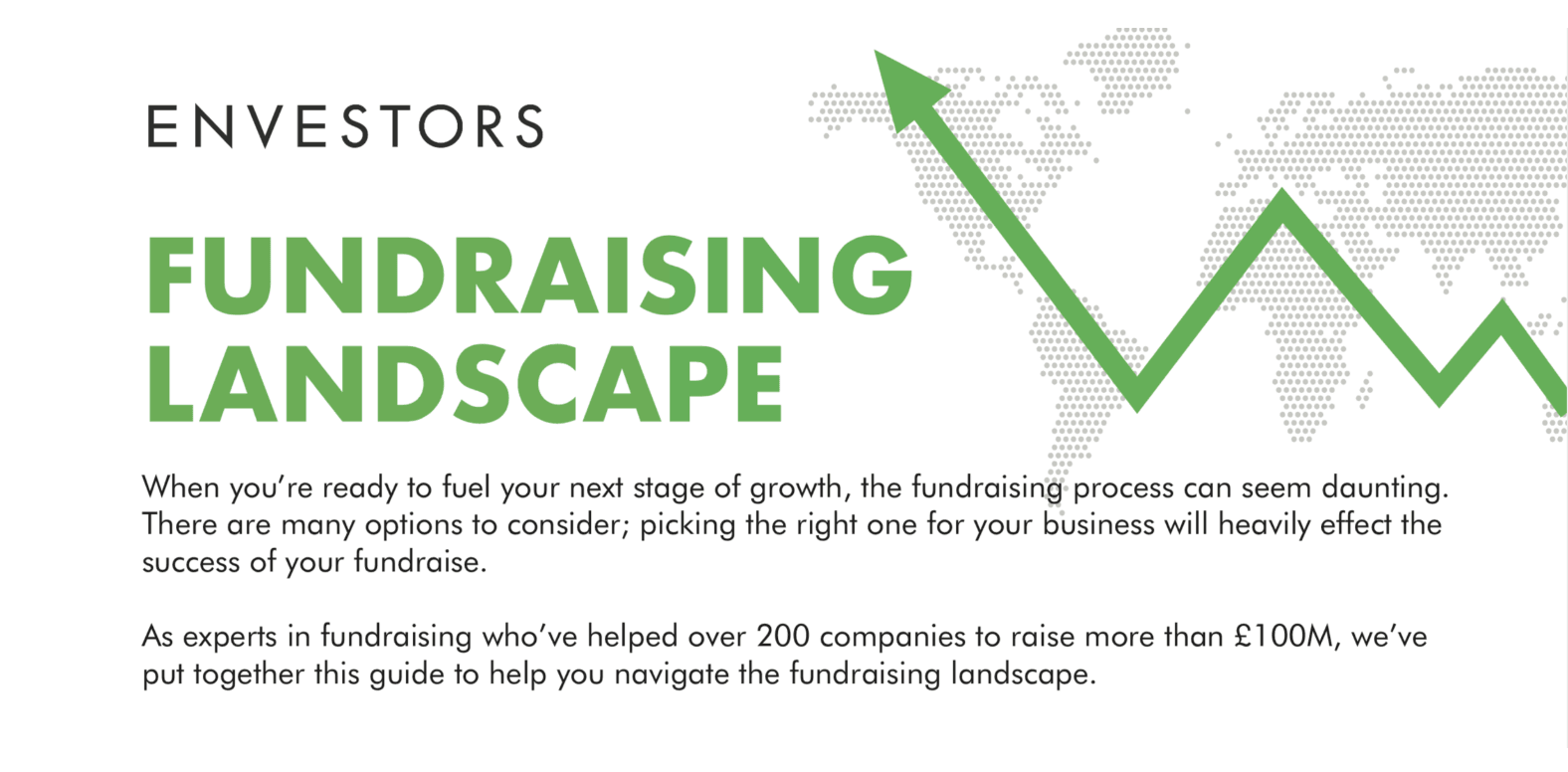The Fundraising Landscape in 2019
The pros, cons and options
Whether you’re at the seed round stage of your business or series C, fundraising can be a daunting process. With so many options to consider in the digital age, it is important to research which route will be the most effective for your future fundraise.
With over 14 years’ experience helping over 200 scale-ups raise more than £100m, we are happy to share a high-level guide to the seven most effective options to help you navigate the landscape. For more details, download our full overview of the fundraising landscape here
1 Angel Networks
A network of angel investors who are offered opportunities to fund a screened company (based on various factors including sector, stage and region). These experienced investors tend to be high net worth individuals, with a ‘hands on’ approach and will likely invest a large sum. There will, however, be tougher competition from other deals and angels are more sensitive to market fluctuation.
2 Your own Fundraising Platform
Funds are raised through the company’s own network via a white label platform with all regulatory requirements in place. A company will have full control over the fundraising campaign length and minimum investment level, can retain full ownership of all their data and will not be charged any success fees for funds raised through their own network. Notwithstanding these perks, the company will have to spend time sourcing their own crowd as access to new investors is not guaranteed.
3 Crowdfunding Sites
Here funds will typically come from an inexperienced crowd who will invest small amounts (as low as £10) via a website where multiple investment opportunities are promoted alongside one another. Whilst this may give great publicity and the company is given the option to choose between giving the investor equity, debt or rewards, this space is highly competitive. The administrative load of managing hundreds of investors (with limited access to their data), short funding round constraints (typically 30 days) and expensive success fees can be a daunting prospect for a start-up entrepreneur.
4 Venture Capital firms and Family Offices
Large ownership chunks are created and sold to a few investors through independent, limited partnerships that are established by venture capital firms. These investments will be £500k+ and will come with a wealth of knowledge and connections but will inevitably require a long due diligence process, many VCs are reluctant to commit funds alongside smaller investors and will require a board seat, thus reducing the entrepreneur’s control and stake of the business.
5 Early Stage Fund EIS/SEIS
These funds are managed by an experienced facilitator and raises finance solely for screened companies who are eligible for the tax incentives offered by the Enterprise Investment Scheme/Seed Enterprise Investment (EIS/SEIS) schemes. These opportunities are attractive to investors who are looking for UK tax relief, but it can be competitive to attain suitable funds.
6 Private Equity (PE)
PE firms usually purchase the entire company. This raises the potential for a large exit, reduces the concise capitalisation table and most PEs have a personal interest in the company performing well. However, a PE will invariably assume control and tend to be sector specific: retail, fashion and food are the areas that attract the most PE interest.
7 Government Grants
A cash injection from a government organisation – for example, Innovate UK – to support R&D in a business that will benefit the country long-term. The company will not have sell equity; this will be appealing to potential investors in future rounds by showing ‘concept support’. These grants typically can only be used for a specific purpose and are usually low, resulting in the need for further, supplemental funding. Companies will need to remain focused on the commercialisation of their product and not just the development phase enabled by such a grant.
Ready to get into the detail? Download our comprehensive guide now to find out which option is right for your business here.
